Premium Only Content

The Story of Freemason, James Cash Penney
The Story of Freemason, James Cash Penney. Penney, the man who built his life on the value of honesty—and it paid off, literally.
Within a decade, he owned 30 more stores. Today, there are 850 JC Penney stores in the US and Puerto Rico.
In the small town of Hamilton, Missouri, on September 16th 1875, James Cash Penney was born to a humble family. Little did they know that their son would one day become a pioneer in the world of retail.
James grew up in a modest household, learning the values of hard work and perseverance from his parents. Despite the family's financial struggles, James excelled in school, showing a natural aptitude for business and a keen eye for detail.
After completing his education, James ventured into the workforce, taking on various jobs to support himself. His determination and work ethic caught the attention of a local merchant, who offered him a job as a store clerk. This marked the beginning of James's journey in the retail industry.
In 1898, Penney began working for a small chain of stores in the Western United States called the Golden Rule stores. In 1902, owners Guy Johnson and Thomas Callahan, impressed by his work ethic and salesmanship, offered him a one-third partnership in a new store he would open.
Penney invested $2,000 to open a store. He participated in opening two more stores, and when Callahan and Johnson dissolved their partnership in 1907 he purchased full interest in all three stores. This would eventually lay the foundation for what would become the iconic JC Penney chain.
Despite facing numerous challenges and setbacks along the way, including a devastating fire that destroyed his store, James remained resilient and determined. He believed in providing quality products at affordable prices, a principle that would define the JC Penney brand for generations to come.
He later moved the company to Salt Lake City, Utah, in 1913 and incorporated it under the new name. Throughout the 1910s and 1920s, Penney expanded the chain nationwide, experiencing significant growth in both stores and income, with over 1,400 stores and a reported income of more than $1 million annually by 1924.
He was heavily involved in philanthropy during this time. However, the stock market crash of 1929 and the subsequent Great Depression led to financial ruin for Penney. Despite personal setbacks, he continued to actively manage the company, even mentoring individuals like Sam Walton, the future founder of Walmart.
Penney's initially adopted a partnership model gleaned from Callahan, Johnson, and other operators who embraced the Golden Rule ethos. Each store partner received a distinct class of stock tied solely to their store's performance, with dividends correlating to individual store profits.
Despite J. C. Penney's ownership of over 50% of the total stock, achieving uniformity in stock ownership across stores didn't occur until 1927. Meanwhile, a fraction of each store's profits was allocated to its managers.
He was picky of who should represent his brand….we should think of that a lot more in today’s Freemasonry.
Fewer than 5% of applicants met the criteria. J. C. Penney personally interviewed thousands of candidates annually, emphasizing stringent standards akin to the Marine Corps. The company cultivated a sense of camaraderie, akin to lifelong brotherhood.
Employee training programs and an internal magazine, The Dynamo, were instituted gradually. The company also introduced innovative employee benefits and insurance schemes, including provisions for those serving in World Wars.
Managers were expected to play leadership roles within their communities, with a significant portion serving as Chamber of Commerce presidents.
J. C. Penney exhibited an unconventional approach to competition, welcoming the entry of rivals like Sears and Montgomery Ward as catalysts for enhanced market competition and integrity.
The company's ethos emphasized public service, price competitiveness, and adherence to the Golden Rule, epitomized by the acronym H C S C: Honor, Confidence, Service, and Cooperation.
Throughout its rapid growth, Penney maintained a profit-sharing system, ensuring those instrumental in the company's success were duly rewarded. Despite reaching the status of the nation's third-largest non-food retailer, Penney's executives received modest salaries, while profit sharing enabled significant earnings for store managers.
In 1927, Penney envisioned the company achieving billion-dollar sales, a milestone realized in 1951.
Despite enticing merger offers from Sears and Montgomery Ward in 1929, Penney's opted to retain independence, prioritizing its unique culture of sharing and cooperation.
Penney remained chairman of the board until 1946 and served as honorary chairman until 1971.
Penney lived in New York City at 888 Park Avenue, though he spent the winters in Palm Springs, California.
On December 26th 1970, Penney fell and fractured his hip. A few weeks later, he suffered a heart attack and never fully recovered. He died on February 12, 1971. The Reverend Dr. Norman Vincent Peale, also a Freemason, delivered the eulogy at the funeral.
Penney was buried in Woodlawn Cemetery in the Bronx New York City, not far from the grave of fellow retail entrepreneur, F. W. Woolworth. His estate was valued at approximately $35 million. Roughly $2.7 Billion today.
Penney was a Freemason most of his adult life, initiated into Wasatch Lodge number 1 Free in, on April 18th 1911 at the age of 36. He was a member of both the Scottish and York Rites, Penney was coroneted a 33rd Degree on October 16th 1945. He received the Gold Distinguished Service Award by the General Grand Chapter, Royal Arch Masons in 1958. He typically wore a large ring showing his Masonic degree.
Penney was a member of two professional collegiate fraternities: Alpha Gamma Rho for agriculture and Alpha Kappa Psi for business. Penney was involved with the founding of the University of Miami and served on its Board of Trustees from 1926 to 1930.
In 1953 the Springfield Missouri Chamber of Commerce presented Penney with a "Ozark Hillbilly Medallion" and a certificate proclaiming him a "hillbilly of the Ozarks."
In 1960 Penney teamed up with the University of Missouri to establish the Penney-Missouri Awards to recognize excellence in Women's Page journalism, hoping to improve the sections where his stores most often advertised.
⚠️ Disclaimer: The views expressed in this video do not necessarily reflect the opinions of the Old Fashion Masonic Podcast, any Grand Lodge or Shrine Center, and we encourage viewers to conduct their research and form their conclusions based on reliable sources and personal beliefs.
#Freemasonry #Freemasons #freemason #masonic
-
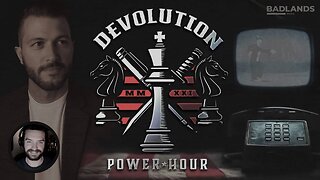 2:04:21
2:04:21
Badlands Media
11 hours agoDevolution Power Hour Ep. 388
137K53 -
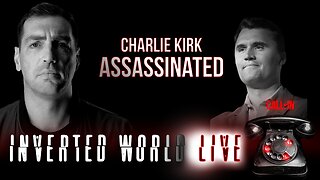 2:08:03
2:08:03
Inverted World Live
4 hours agoCharlie Kirk Assassinated | Ep. 106
75.2K25 -
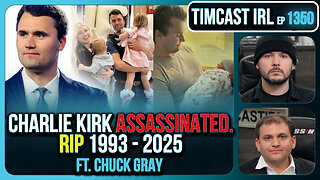 3:01:07
3:01:07
TimcastIRL
6 hours agoCharlie Kirk Assassinated, Suspect In Custody | Timcast IRL
548K730 -
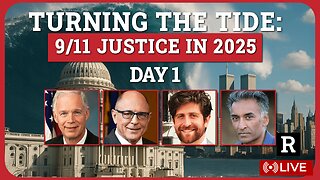 5:44:49
5:44:49
Redacted News
8 hours agoTurning the Tide: 9/11 Justice in 2025 — Day 1 with Sen. Ron Johnson, Richard Gage and More
158K60 -
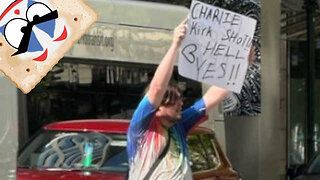 2:48:00
2:48:00
TheSaltyCracker
6 hours agoYou're Being Hunted ReeEEStream 9-10-25
255K493 -
 13:09:56
13:09:56
LFA TV
19 hours agoBREAKING: CHARLIE KIRK ASSASSINATED - WEDNESDAY 9/10/25
353K118 -
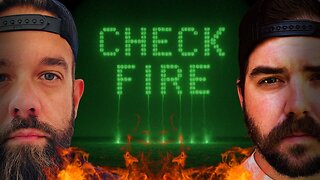 1:31:08
1:31:08
I_Came_With_Fire_Podcast
6 hours agoCheck Fire: God Bless Charlie Kirk
55K17 -
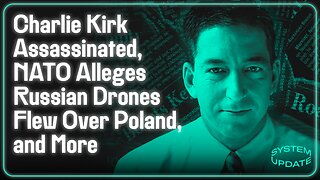 1:13:35
1:13:35
Glenn Greenwald
8 hours agoCharlie Kirk Assassinated; NATO Alleges Russian Drones Flew Over Poland, and More | SYSTEM UPDATE #512
265K269 -
 1:46:28
1:46:28
Badlands Media
21 hours agoAltered State S3 Ep. 45: The Assassination of Charlie Kirk
139K15 -
 8:56:53
8:56:53
Dr Disrespect
14 hours ago🔴LIVE - DR DISRESPECT - THE FINALS - NEW SEASON 8 LAUNCH EVENT W/ THE SHOTTY BOYS
268K10